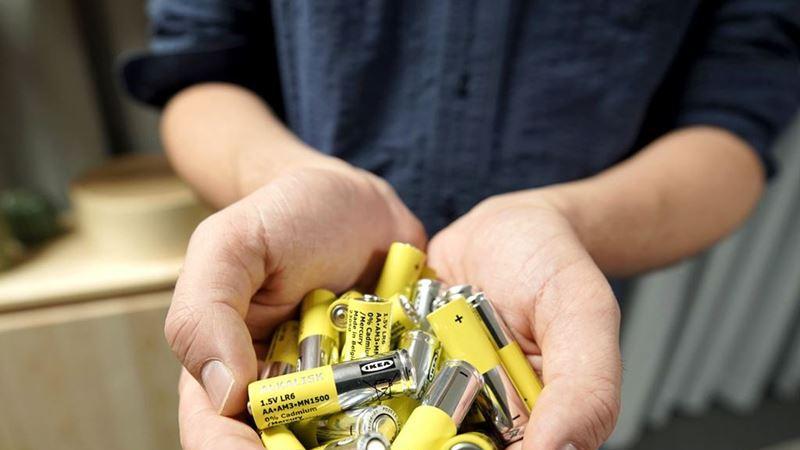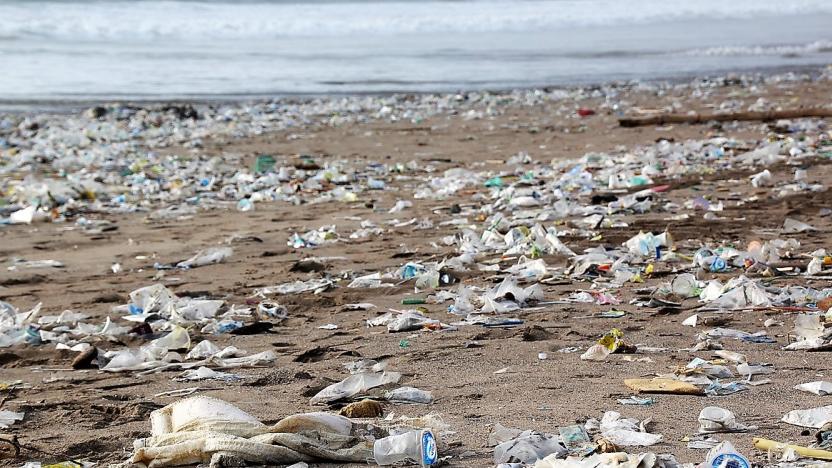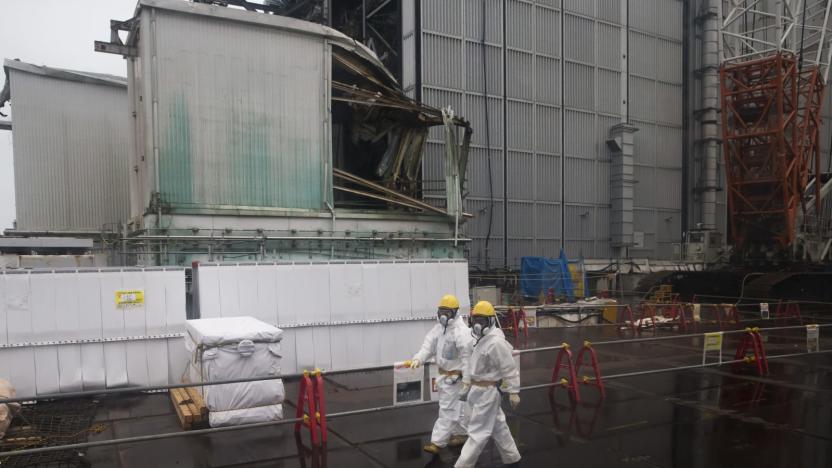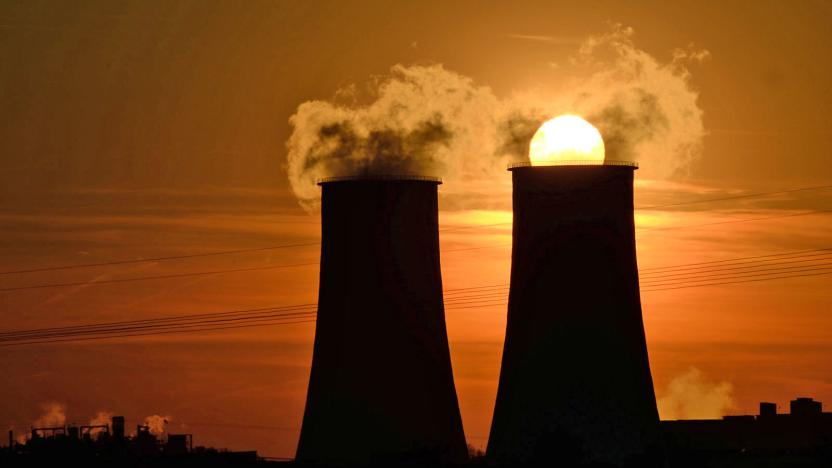waste
Latest

Lasso is working on a recycling center for the home
The collection boxed could merely be redistributed to manufacturers and turned into new products that don’t require any additional materials. Aldous Hicks, CEO of Lasso, believes that everyone should treat recycling like washing clothes and dishes.
Nick Summers01.12.2021
Ikea will stop selling non-rechargeable alkaline batteries by October 2021
The days of strolling into an Ikea and plopping down a few dollars for a 10-pack of Alkalisk batteries are coming to an end. The Swedish furniture-and-meatball purveyor announced earlier this morning that, due to concerns over waste and sustainability, it plans to stop selling nearly all non-rechargeable batteries around the world by October 2021.
Chris Velazco10.01.2020
Microsoft wants to operate with 'zero waste' by 2030
Microsoft has set some big environmentally focused goals for itself, and it plans to achieve them over the next 10 years. In addition to reaching carbon negative status by 2030, the tech giant has revealed that it also aims to have zero waste operations and packaging within the same year. It has listed the steps it intends to take to get there, including the construction of “Circular Centers” at its data centers providing Azure and Microsoft 365 services.
Mariella Moon08.04.2020
Amazon has eliminated single-use plastic at its Indian fulfillment centers
Amazon's fulfillment centers in India are now free of single-use plastics.
Rachel England06.29.2020
Sega Europe is moving to recycled packaging for PC games
Remember when PC games came in a box and you had to buy them at a store? Apparently that's still a thing. To curb pollution and waste, Sega Europe is committing to using 100 percent recycled and 100 percent recyclable packaging for its PC games. The company promises that the boxes and manuals will have a premium look and feel, so collectors can still display their games with pride. The packing materials are printed with water- and vegetable-based inks to further cut down on waste. Even the shrinkwrap is recyclable.
Marc DeAngelis01.30.2020
UN chief warns nuclear waste could be leaking into the Pacific
A UN chief is concerned that a Cold War-era nuclear 'coffin' could be leaking radioactive material into the Pacific. The concerns are both alarming and oddly similar to the plot of Shin Godzilla -- including the part about it being the US's fault.
Christine Fisher05.17.2019
Scientists accidentally produce an enzyme that devours plastic
There are research teams around the world dedicated to finding a remedy for the growing plastic pollution crisis, but now it seems that one group of scientists have found a feasible answer -- and they stumbled upon it by accident. Researchers studying a newly-discovered bacterium found that with a few tweaks, the bug can be turned into a mutant enzyme that starts eating plastic in a matter of days, compared to the centuries it takes for plastic to break down in the ocean.
Rachel England04.17.2018
ESA plans to measure ocean plastic data from space
Scientists at the European Space Agency (ESA) are working on a technology that would allow them to identify from space just how much plastic there is floating around in oceans. Until now, researchers have used satellite maps to simulate the accumulation of marine trash, but the new project would use direct optical measurements to provide actual data on the scale of the issue.
Rachel England03.20.2018
Cigarette butts could be reborn as green energy storage
It's no secret that smoking is seriously bad news for your health, but the impact of the habit on the planet's health is pretty bleak, too. Every year nearly six trillion cigarettes are smoked around the world, generating more than 800,000 metric tons of cigarette butts. Something has to be done with them all, and they usually end up in landfill (or leaching into waterways). But now, scientists have discovered they may have a hidden potential: hydrogen storage.
Rachel England11.01.2017
The UK gets its first ocean-cleaning 'Seabin'
It's no secret that the world's oceans are full of floating waste. Things like plastic not only pollute the natural ecosystem, but pose a very real threat to its inhabitants. Back in December 2015, we were first introduced to the concept of the Seabin, a floating natural fiber garbage bin that can suck in pollutants in docks and marinas and leave the water pristine. Its creators needed help making the concept a reality, taking to Indiegogo to raise enough funds to deploy their marine disposal units all over the world. With over $260,000 in their pocket, two Australian surfers, Pete Ceglinski and Andrew Turton, have today embarked on that journey, installing the world's first production Seabin in Portsmouth (UK) harbour.
Matt Brian10.11.2017
Japan has delayed the Fukushima nuclear plant cleanup again
There's been another delay in the plan to clean up the Fukushima nuclear plant. The Japan Times reported today that the country's government approved another revision to the cleanup schedule that will push removal of radioactive fuel rods from reactor Units 1 and 2 three years further down the road. This latest delay, which is due to newly uncovered damage in the storage pools, means that the cleanup is now six years behind schedule.
Mallory Locklear09.27.2017
E-waste levels are surging in Asia
If you thought our throwaway gadget culture was already having a nasty effect on the environment, watch out... it's getting considerably worse. A United Nations University study has revealed that the volume of e-waste in East and Southeast Asia surged 63 percent between 2010 and 2015, reaching 12.3 million tonnes. Hong Kong, Singapore, Taiwan and mainland China were unsurprisingly the largest local generators. But why the rapid spike?
Jon Fingas01.16.2017
Researchers find a new way to convert heat into electricity
When we think about ways to make existing power plants more efficient, we typically look at waste heat. It's something almost everything generates -- coal plants, automobiles and even your refrigerator loses a sizeable amount of energy to lost heat. Capturing and using this heat to generate electricity with can save money and reduce fossil fuel consumption, but capturing power from that heat has always been a challenge. Now, researchers have created a new material that could represent a major step forward in thermoelectric electricity production.
Sean Buckley11.16.2016
The Galaxy Note 7's death creates an environmental mess
Samsung's decision to discontinue the Galaxy Note 7 and recover remaining units isn't just a blow to smartphone fans... it's not so hot for the environment, either. Experts speaking to Motherboard point out that phone recycling is still a very young field, and that many of the rare earth elements (such as cobalt and indium) won't be recycled at all. There's going to be a significant amount of e-waste when all is said and done, in other words. And while the waste from about 2.5 million barely-used Note 7s isn't going to trigger an ecological disaster, it's considerably worse than refurbishing those phones.
Jon Fingas10.12.2016
Automatic garbage bin promises to clean the oceans
Take a close look at the water in your local marina and you'll probably shudder at the amount of waste floating around. You'd practically need a dedicated clean-up crew to make it safe, wouldn't you? However, a pair of Australian surfers think they have a better way. Their crowdfunded Seabin promises to clean up marinas (and by extension, the ocean) through the one-two combo of a natural fiber garbage bin and an automated, above-the-water pump. It's almost too simple a concept, but it seems to work -- it sucks in all kinds of filth (including oil) and spits out clean water. You'd ideally leave a bunch of Seabins running at the dock all day, keeping the water relatively pristine.
Jon Fingas12.29.2015
Volvo wants robots to help collect your garbage
To call garbage collection an inglorious job would be an understatement -- it typically involves early mornings, monotony and (of course) lots of smelly trash. It's the perfect sort of job for a robot, don't you think? Volvo agrees. It's partnering with both universities and waste management firm Renova on ROAR (Robot-based Autonomous Refuse handling), a project that has robots pick up your trash while a human oversees everything from the relative comfort of the garbage truck. It's still early going (the odds are that the end product will look nothing like what you see above), but the hope is that it'll eliminate most of the drudgery and noise of scooping up waste. You should see the first tests in June 2016, although it could be a while longer before you see automatons in front of your house -- ROAR won't be practical unless the robots can reliably empty cans and bins in real-world conditions.
Jon Fingas09.20.2015
Europe doesn't properly recycle most of its electronic waste
You probably know that you should recycle your old tech when you're done with it, but getting other people to do the same? That's quite hard, apparently. The United Nations and INTERPOL have found that only 35 percent of the European Union's electronic waste in 2012, about 3.2 million imperial tons, was recycled properly. The rest (6.1 million tons) was either exported, recycled improperly or trashed. And that's a problem beyond just the expected environmental issues, such as toxins making their way into landfills. Many crooks take advantage of this lapse by scavenging and smuggling e-waste -- that old laptop you chucked out might be a gold mine for a bootlegger hoping to sell its parts or raw metals.
Jon Fingas08.30.2015
Recommended Reading: The problem with Record Store Day
Recommended Reading highlights the best long-form writing on technology and more in print and on the web. Some weeks, you'll also find short reviews of books that we think are worth your time. We hope you enjoy the read. Record Store Day and the Ambivalent Branding of Independence by Eric Harvey Pitchfork Record Store Day celebrates the culture of independent record shops each spring. Today marks the eighth annual holiday for vinyl collectors and music lovers, but the event is becoming packed with more big names each year. Whether it's Jack White's world record or releases from Metallica or Foo Fighters, celebrities are now just as much a part of the festivities, and distributors seem to be favoring bigger shops over smaller, local spots.
Billy Steele04.18.2015
Your old laptop's battery will light homes in developing countries
Don't be too quick to toss out the battery from that ancient laptop -- it might just be the key to powering homes in developing countries, and helping the environment in the process. IBM researchers have revealed UrJar, a device that turns old lithium-ion battery packs into rechargeable energy sources for low-power devices like LED light bulbs, fans and cellphones. To create the gadget, the team extracts functioning lithium-ion cells from a trashed battery and combines them with both charging dongles and safety circuitry. It sounds simple, but it's potentially very effective. According to IBM, roughly 70 percent of all discarded batteries can provide at least four hours of LED lighting every day for a year. That's enough to offer extra safety to homes in areas with little to no reliable electricity, or to keep a street vendor in business after sunset.
Jon Fingas12.09.2014
Sainsbury's teams up with Google to stop you wasting food
It turns out that us Brits are a wasteful bunch. Studies suggest we're throwing out as much as £60 worth of food and drink each month when we could be putting it to better use. Instead of trying to convince you to head over to one of its stores to replenish your supplies, Sainsbury's has teamed up with Google to create a tool that provides suggestions on how to use the food you'd otherwise be chucking out. It's called Food Rescue, and Google plays a small but vital role in proceedings by lending the same voice-recognition tech that powers its search engine to the supermarket's new mobile and online tool. When you visit the website, you can say (or type) what foodstuffs you have an it'll find a range of recipes that use those ingredients. In a bid to get more people involved, the supermarket chain will record the weight of food rescued and calculate the money saved in each recipe. That information will then be added to a real-time leaderboard of top 'rescuers' across the UK. You say tomato, I say tomato, it'll still work the whole thing out.
Matt Brian06.05.2014